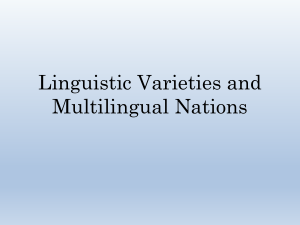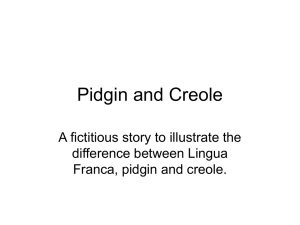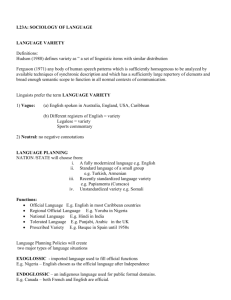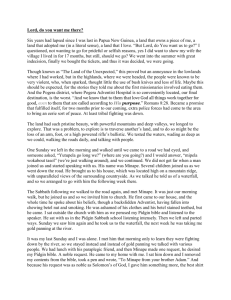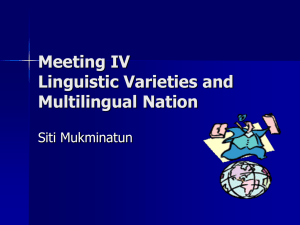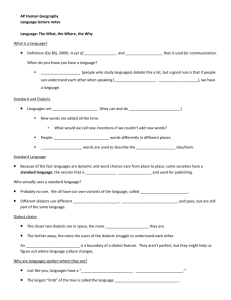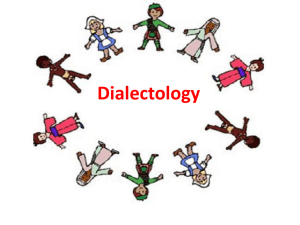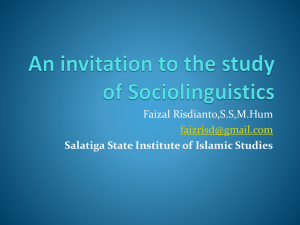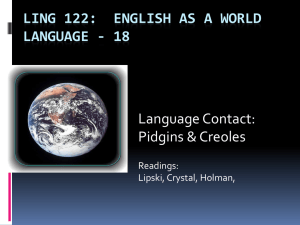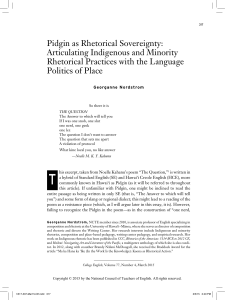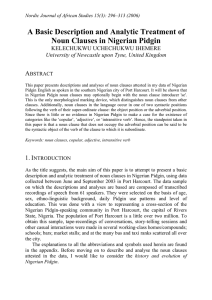Linguistic varieties and multilingual nations Raung-fu Chung Lecture notes
advertisement
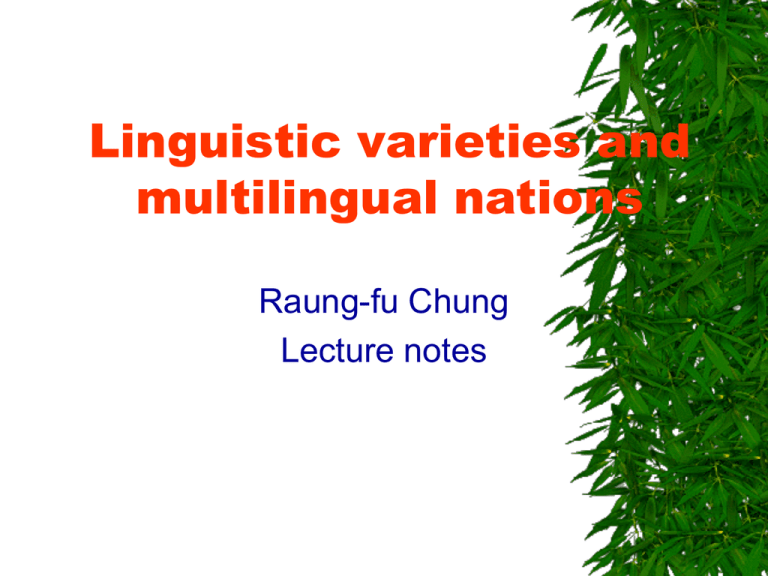
Linguistic varieties and multilingual nations Raung-fu Chung Lecture notes Vernacular languages The first language learned by people in multilingual communities The variety used for communication in the home and with close friends Simply means a language which is not an official language in a particular contest (Hebrew vernacularisation) Hebrew • In the past no native speakers No parental tongue Now Vernacularisation The national language of Israel Standard language Recognized as a prestigious variety or code by a community Generally is written, and has undergone some degree of regularization or codification The most useful and widely used as an official language or the national language (ex.Standard English) Standard English Originally, a regional English dialect In 15th, widely used in the Court and the influential merchants of London Two universities, Oxford and Cambridge, used it for literature or politics London has become the hub of international trade and export Lingua franca Eventually displace the vernacular A simplified speech used for communication between people with different languages Serves as a regular means of communication between different linguistic groups in a multilingual speech community The development of Pidgin and Creole Varnacular+ Other prestigious languages Pidign Creoles The differences between Pidgin and Creole Development Structure Vocabulary *Transactional *Referential *Functional *Administrational *Simplified *Describtive *Substrate (vernacular) *Derived from Pidgin which requires native speakers *Expanded *Systematic *Signaling *more functional *Lexifier ( Prestigious) (supertrate) *Noompliteness *More vocabularies The differences between Pidgin and Creole Attitude Using domain *Ridiculous *Restricted *Low-prestigious *Transportation city *Negitive *Trading port *Respectable *Strong loyalty *Solidarity *Positive *Wide range of domain The development of Pidgin ‘s structure Varnacular language+ prestigious languages (台語) Substrate (Structure) + (國語) Supertrate (Vocabulary) Pidgin (台灣國語)(例:吃飽沒)
